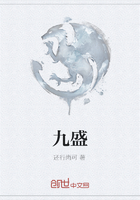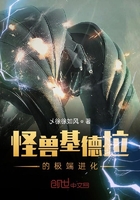and voice, exclaimed: "What means this?- With what am I charged? - Why this base usage and these reproachful terms?" "Are the princes of the Crusade turned hares or deers in the eyes of King Richard, that he should25 slip hounds on them?"said the deep voice of the Grand Master of the Templars.
"It must be some singular accident, some fatal mistake," said Philip of France, who rode up at the same moment.
"A trick of the Saracens," cried Henry of Champagne. "It were well to hang up the dog and put the slave to the torture.""Let no man lay hand upon them," said Richard, "as he loves his own life! Conrade, stand forth, if thou darest, and deny the accusation which this mute animal hath in his noble instinct brought against thee, of injury done to him and foul scorn to England.""I never touched the banner," said Conrade, hastily.
"Thy words betray thee, Conrade!" said Richard; "for how didst thou know, save from conscious guilt, that the question is concerning the banner?""Hast thou then not kept the camp in turmoil on that and no other score?" answered Conrade; "and dost thou impute to a prince and an ally a crime, which, after all, was probably committed by some petty thief for the sake of the gold thread? Or wouldst thou now impeach a confederate on the credit of a dog?"By this time the alarm was becoming general, so that Philip of France interposed.
"Princes and nobles," he said, "you speak in presence of those whose swords will soon be at the throats of each other, if they hear their leaders at such terms together. In the name of Heaven, letus draw off, each his own troops, into their separate quarters, and ourselves meet an hour hence in the Pavilion of Council, to take some order in this new state of confusion.""Content," said King Richard, "though I should have liked to have interrogated that caitiff1 while his gay doublet was yet besmirched2 with sand. But the pleasure of France shall be ours in this matter."The council assembled at the appointed hour. Conrade had in the meanwhile laid aside his dishonored dress, and with it the shame and confusion which, in spite of his talents and promptitude, had at first overwhelmed him, owing to the strangeness of the accident and suddenness of the accusation. He was now robed like a prince, and entered the council- chamber attended by several other potentates3, who made a show of supporting him and defending his cause, chiefly perhaps from political motives or because they themselves nourished a personal enmity against Richard.
This appearance of union in favor of Conrade was far from influencing the king of England. He entered the council with his usual indifference of manner, and in the same dress in which he had just alighted from horseback. He cast a careless and somewhat scornful glance on the leaders who had arranged themselves around Conrade, as if owning his cause, and in the most direct terms charged Conrade of Montserrat with having stolen the banner of England, and wounded the faithful animal1 Caitiff: base fellow; wicked man. 2 Besmirched: soiled; discolored. 3 Potentates: princes; kings.
who stood in its defense.
Conrade arose boldly to answer, and in despite, as he expressed himself, of man and brute, king or dog, asserted his innocence of the crime charged. "Brother of England," said Philip, "this is an unusual impeachment. We do not hear you assert your own knowledge of this matter, farther than your belief resting upon the demeanor of this hound toward the Marquis of Montserrat. Surely the word of a knight and a prince should bear him out against the barking of a cur?""Royal brother," returned Richard, "recollect that the Almighty, who gave the dog to be companion of our pleasures and our toils, hath given him a nature noble and incapable of deceit. He forgets neither friend nor foe, remembers with accuracy both benefit and injury. He hath a share of man"s intelligence, but no share of man"s falsehood. You may bribe a soldier to slay a man with his sword, or a witness to take life by false accusation; but you cannot make a hound tear his benefactor,-he is the friend of man, save when man justly incurs1 his enmity. Dress yonder marquis in what peacock-robes you will, disguise his appearance, alter his complexion with drugs and washes, hide him amidst an hundred men- I will yet pawn my scepter that the hound detects him and expresses his resentment, as you have this day beheld. This is no new incident, although a strange one. Murderers and robbers have been ere now convicted and suffered death under such evidence, and men have said that the finger of God was in it. Credit me, royal brother, that hidden crimes have often been brought to light by the1 Incurs: meets with; exposes one"s self to.















